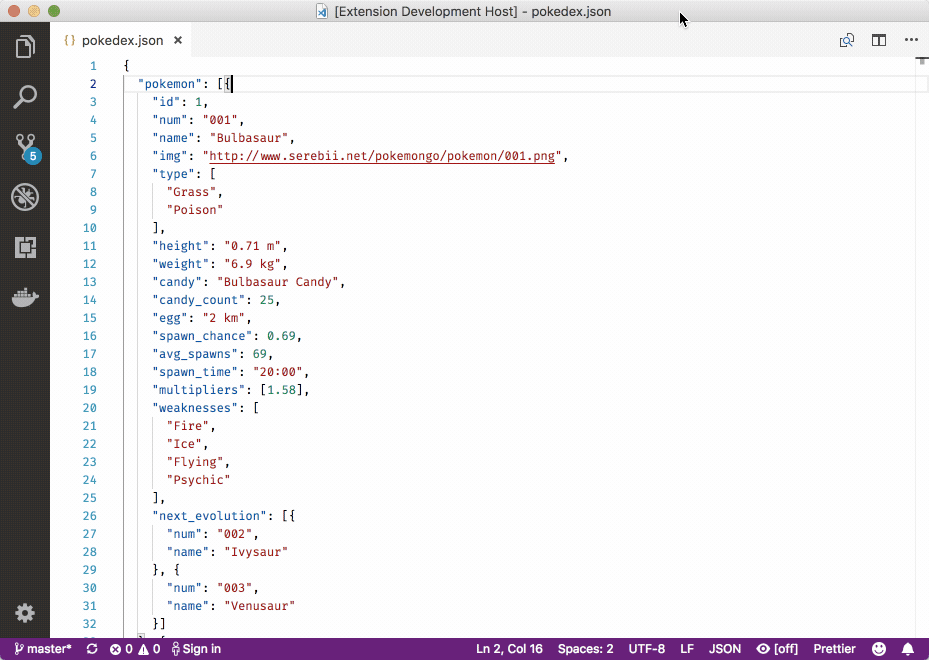JSON to python object
The follwing code creates dynamic attributes with the objects keys recursively.
JSON object - fb_data.json:
{
"name": "John Smith",
"hometown": {
"name": "New York",
"id": 123
},
"list": [
"a",
"b",
"c",
1,
{
"key": 1
}
],
"object": {
"key": {
"key": 1
}
}
}
On the conversion we have 3 cases:
- lists
- dicts (new object)
- bool, int, float and str
import json
class AppConfiguration(object):
def __init__(self, data=None):
if data is None:
with open("fb_data.json") as fh:
data = json.loads(fh.read())
else:
data = dict(data)
for key, val in data.items():
setattr(self, key, self.compute_attr_value(val))
def compute_attr_value(self, value):
if isinstance(value, list):
return [self.compute_attr_value(x) for x in value]
elif isinstance(value, dict):
return AppConfiguration(value)
else:
return value
if __name__ == "__main__":
instance = AppConfiguration()
print(instance.name)
print(instance.hometown.name)
print(instance.hometown.id)
print(instance.list[4].key)
print(instance.object.key.key)
Now the key, value pairs are attributes - objects.
output:
John Smith
New York
123
1
1
Paste JSON as Code
Supports TypeScript, Python, Go, Ruby, C#, Java, Swift, Rust, Kotlin, C++, Flow, Objective-C, JavaScript, Elm, and JSON Schema.
- Interactively generate types and (de-)serialization code from JSON, JSON Schema, and TypeScript
- Paste JSON/JSON Schema/TypeScript as code
![enter image description here]()
quicktype infers types from sample JSON data, then outputs strongly typed models and serializers for working with that data in your desired programming language.
output:
# Generated by https://quicktype.io
#
# To change quicktype's target language, run command:
#
# "Set quicktype target language"
from typing import List, Union
class Hometown:
name: str
id: int
def __init__(self, name: str, id: int) -> None:
self.name = name
self.id = id
class Key:
key: int
def __init__(self, key: int) -> None:
self.key = key
class Object:
key: Key
def __init__(self, key: Key) -> None:
self.key = key
class FbData:
name: str
hometown: Hometown
list: List[Union[Key, int, str]]
object: Object
def __init__(self, name: str, hometown: Hometown, list: List[Union[Key, int, str]], object: Object) -> None:
self.name = name
self.hometown = hometown
self.list = list
self.object = object
This extension is available for free in the Visual Studio Code Marketplace.


dicts is a weak-sauce way to do object-oriented programming. Dictionaries are a very poor way to communicate expectations to readers of your code. Using a dictionary, how can you clearly and reusably specify that some dictionary keys-value pairs are required, while others aren't? What about confirming that a given value is in the acceptable range or set? What about functions that are specific to the type of object you are working with (aka methods)? Dictionaries are handy and versatile, but too many devs act like they forgot Python is an object oriented language for a reason. – Colourable